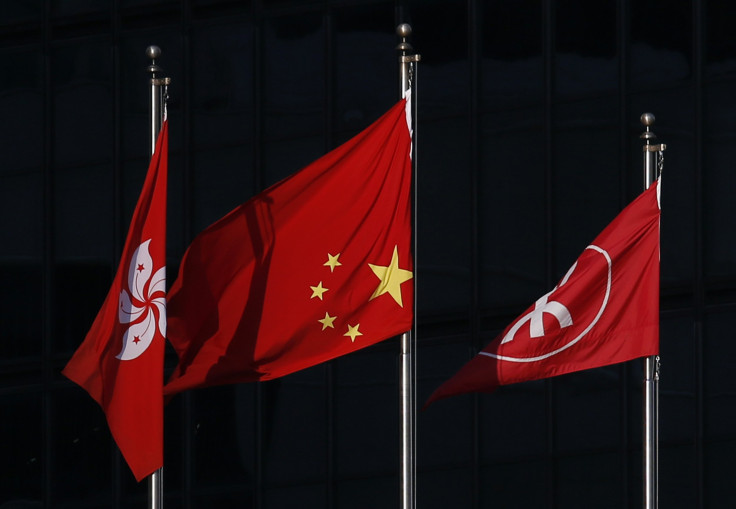Hong Kong Protests Barely Register In China

The demonstrations roiling Hong Kong have continued into a second week as protesters fanned out across the territory's central business district, continue to demand greater political autonomy from Beijing. But within mainland China, popular reaction to the events has been muted, a consequence both of the country's efficient censorship apparatus and an ambivalence toward a territory whose return to Chinese sovereignty in 1997 galvanized patriotic fervor.
"Most Chinese people don't know about what's happening in Hong Kong," said Angelica Lee, a native of southwest China who works as an interpreter in Beijing. "At most they'd see news reports of people celebrating National Day [Oct. 1] there and feel happy about that."
Since reports of the protests first emerged last week, the Chinese government has ordered journalists to avoid covering them, while state-run television has broadcast footage from a smaller, pro-Beijing demonstration in Hong Kong. Government-employed censors have deleted references to the protests on Sina Weibo, China's Twitter, and have banned Instagram, the popular photo-sharing app owned by Facebook, on the mainland. The attempts to bury coverage appears to be working: On WeChat, a smartphone-based text messaging app used by more than 400 million people in China, the event has not appeared as a trending topic.
In the 17 years since sovereignty of Hong Kong transferred from the U.K. to China, which promised to uphold the territory's separate political, legal, and economic systems until 2047, relations between the two have been uneasy: Beijing's meddling in Hong Kong's political affairs has sparked unrest over the years, and, despite sharing an ethnicity, a decreasing percentage of Hong Kong's citizens now identify as Chinese. On the mainland, complaints from the comparatively affluent "special administrative region" have periodically caused resentment. In 2012, a Chinese academic, Kong Qingdong, sparked controversy by accusing Hong Kongers of a lack of patriotism and labeling them "running dogs for British imperialism."
"Some mainlanders think Hong Kongers are ungrateful," said Lee. "Some people think that they're born with an advantage and enjoy certain privileges over the Chinese."
With Hong Kong's protests seemingly gaining momentum, these old dynamics have left those Chinese who are following the story with ambivalence.
"I think some mainlanders are sympathetic to complaints that China hasn't given Hong Kong the democracy it promised them," said Matthew Stinson, a longtime American expat in China and frequent commenter on the country. "But the protesters get no sympathy if they hang the Chinese flag upside down."
Not all Chinese have refrained from comment. Several elderly people in Shanghai unfurled a sign supporting Hong Kong's efforts to democratize, while on Sina Weibo a post written Monday exhorting people to go to Hong Kong to buy an iPhone 6 -- an oblique reference to the protests -- was retweeted almost 3,000 times.
But while the protesters' bid to increase their political rights may garner some sympathy on the mainland, support only goes so far.
"When it comes to independence, that's a non-starter," said Stinson.
© Copyright IBTimes 2025. All rights reserved.





















